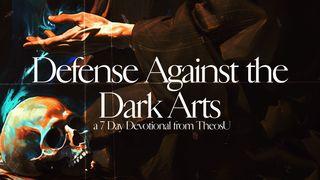Justice ParablesSample

The Rich Man and Lazarus
Rev. Dr. Cory L. Jones
Tabernacle Baptist Church, Burlington, New Jersey
While living in Atlanta, I went to get lunch from a local supermarket. Before I entered the store, a young homeless man asked me for lunch. I had a little extra money, so it was my pleasure to purchase food for him. When I exited the supermarket, I gave the food to the young man. He was grateful and began to pack up his clothes to leave. An older gentleman noticed our exchange and asked me if I could purchase food for him as well. By this time, however, I didn’t have any cash left. The older gentleman was noticeably disappointed that I could not offer him a meal. As the younger man was preparing to leave with his lunch, he went to the older man and said, “I can’t let another man starve, too.” He then got another container and utensils and shared his lunch with the older man.
The plight of these men reflects our culture’s moral and ethical contamination. The supermarket was filled with fruits, meats, vegetables, and other groceries, including cold and hot meal stations. Several patrons exited the store with bags of items, lunch and dinners for themselves and their families, as well as money left over. Yet, two homeless men shared one lunch in front of the supermarket. This speaks loudly of our unwillingness to share resources with those that may not have access. Like Lazarus who only asked for a little, these men weren’t asking for much, yet those who can help did not oblige.
The two homeless men understood the importance of community more than those in the supermarket. The young man shared his food because he couldn’t stand the thought of another man being hungry. For far too long, those at the bottom of the socioeconomic ladder have had to care and even overextend themselves for one another while those at the top of the ladder refuse to have mercy. Families have been financially crippled by unexpected illnesses, increasing childcare needs, and other mitigating factors.
As a nation and as Christians, the parable of the Rich Man and Lazarus challenges us. Today, there are children and families suffering at our borders. There is still a water crisis in Flint, Michigan. There is mass incarceration of a segment of our population that highlights corruption in our justice system. Healthcare is still not a guarantee for all citizens. Lazarus continues to suffer while the rich man lives in luxury. What we are doing to the “least of these” is what we are doing to Christ. We must reflect on the role we play. Are we like the rich man or are we doing all we can to help Lazarus? One thing is certain, there is a price to pay for those of us that are not concerned. Let’s be the church and nation that cares about the downtrodden.
Questions
- Are you engaged in a faith community that takes a special interest in the “Lazaruses” in our world?
- What can you specifically do outside of your faith community to help comfort “Lazarus”?
- What else do the Scriptures say about justice?
- Do you have faith in God that expresses itself in love and concern for others?
- Pray today that God will help you in your journey to help others.
Scripture
About this Plan

Being part of the Kingdom of God should shape our personal character—and our public roles. But how? “Jesus’s Parables on Justice” features the reflections of 30 Philadelphia pastors on 11 parables that illuminate the Kingdom. The pastors help us ask good questions about these surprising stories to guide us in putting Jesus’s words into practice. Read Jesus’s words. Consider the questions. See what God says to you.
More
Related plans

Advent: Join the Triumph

Where Do We Come From?

The Comeback Part 1

Defense Against the Dark Arts

Led by the Spirit: Journey Through the Book of Acts Part 1

Thriving Through the Holidays: 5 Days of Hope for the Military Wife This Christmas

Hope in the Midst of Chaos: Devotions for Teen Mothers

Abide, Adore, Ask and Agree: 21 Days of Prayer and Fasting With Rock City Church

Hope for the Holidays
